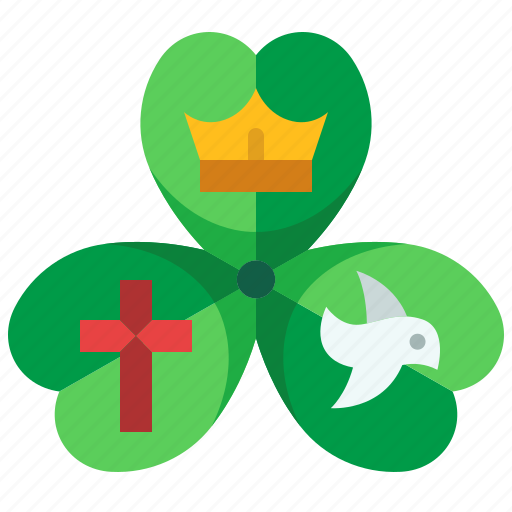Happy St. Patrick’s Day
“Go therefore and make disciples of all nations, baptizing them in the name of the Father and of the Son and of the Holy Spirit,” (Matt. 28:19 ESV)
St. Patrick’s shamrock illustration
A popular story about St. Patrick, is that he used the shamrock to explain the concept of the Holy Trinity, three persons in one God, to an unbeliever by showing him the three-leaved plant with one stalk. Traditionally, Irishmen have worn shamrocks, the national flower of Ireland, in their lapels on St. Patrick’s Day.
Who was St. Patrick?
Even though we happily celebrate St. Patrick’s Day, and many of us wear green on this day, most don’t know much about who St. Patrick was.
The patron saint of Ireland
St. Patrick was credited with bringing Christianity to Ireland and was probably responsible in part for the Christianization of the Picts and Anglo-Saxons. He is known only from two short works, the Confessio, a spiritual autobiography, and his Letter to Coroticus, a denunciation of British mistreatment of Irish Christians.
Before the end of the 7th century, Patrick had become a legendary figure, and the stories have continued to grow. One of these would have it that he drove the snakes of Ireland into the sea to their destruction. Patrick himself wrote that he raised people from the dead, and a 12th-century hagiography places this number at 33 men, some of whom are said to have been deceased for many years. He also reportedly prayed for the provision of food for hungry sailors traveling by land through a desolate area, and a herd of swine miraculously appeared.
Separating fact from fiction
While it can be challenging to distinguish fact from fiction in many instances, it has been asserted that his strong proclamation of the gospel and his efforts to serve God honestly were both totally factual.The following passage commands us to carry out that action. Perhaps we should focus on that when we think of St. Patrick’s Day.
“And whatever you do or say, do it as a representative of the Lord Jesus, giving thanks through him to God the Father.” (Col. 3:17 ESV)
